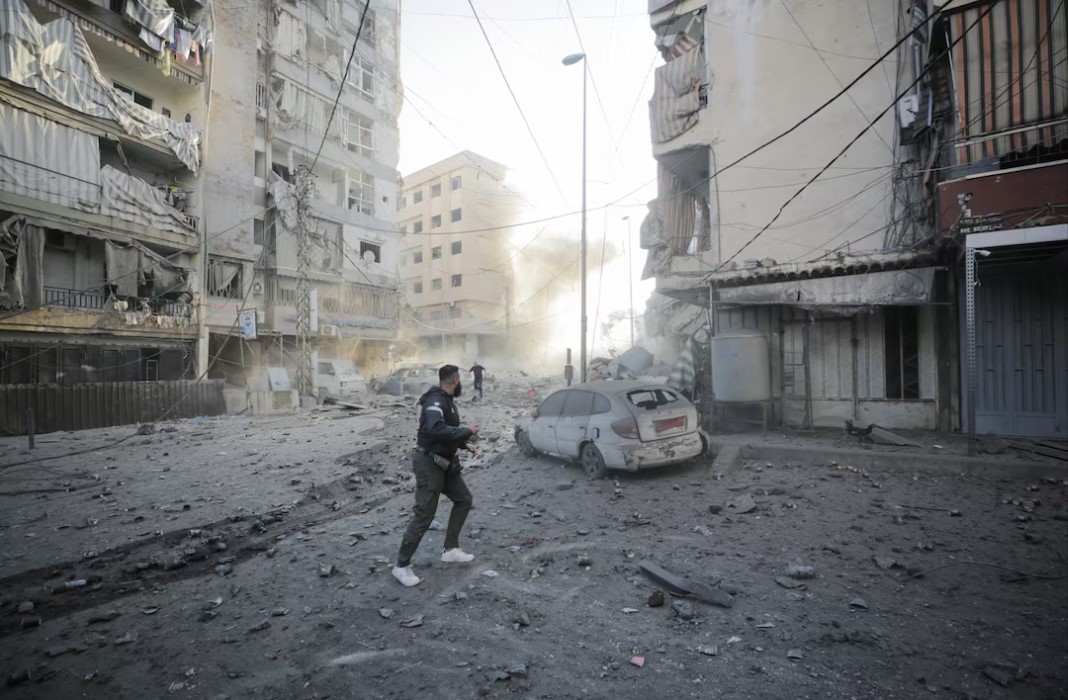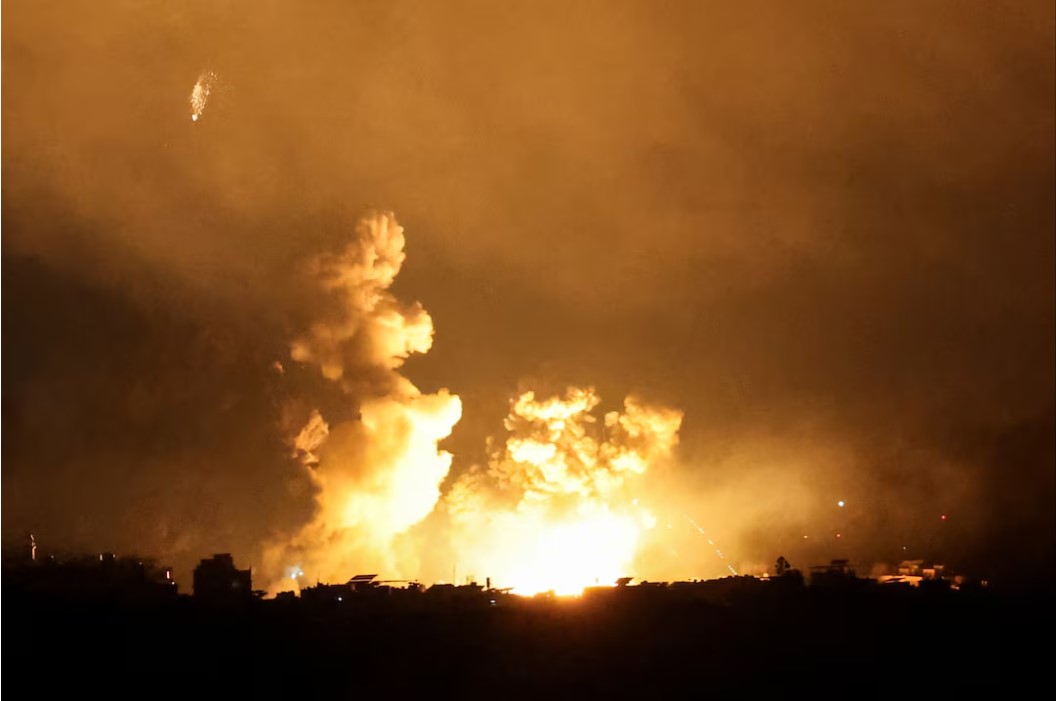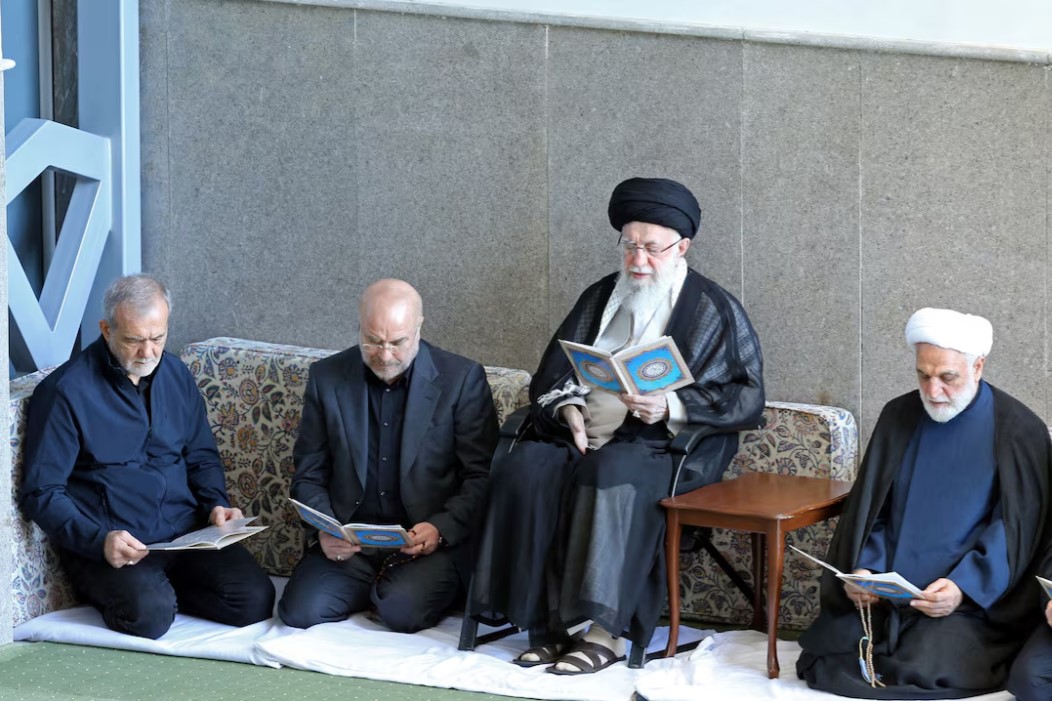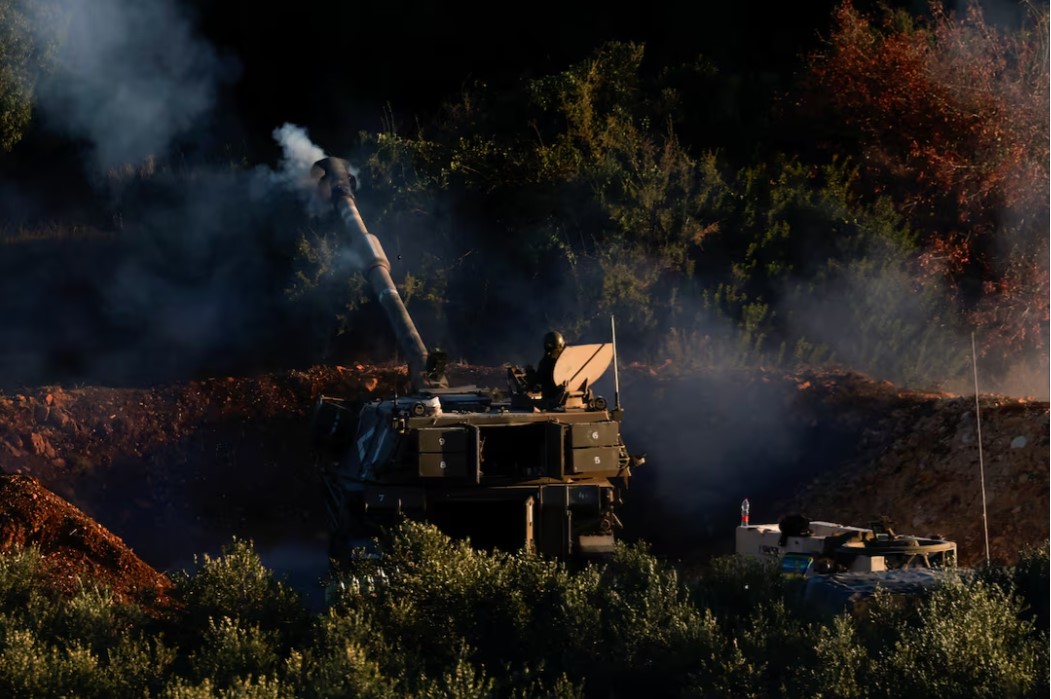
BEIRUT/JERUSALEM – Israel said it had targeted the intelligence headquarters of Hezbollah in Beirut and was assessing the damage on Friday after a series of strikes on senior figures in the group that Iran's Supreme Leader dismissed as counterproductive.
Israel has been weighing options in its response to Iran's ballistic missile attack on Tuesday, which Iran had carried out in response to Israel's military action in Lebanon.
Oil prices have risen on the possibility of an attack on Iran's oil facilities as Israel pursues its goals of pushing back Hezbollah militants in Lebanon and eliminating their Hamas allies in Gaza.
The air attack on Beirut, part of a wider assault that has driven more than 1.2 million Lebanese from their homes, was reported to have targeted the potential successor to the Hezbollah leader, Sayyed Hassan Nasrallah, killed by Israel a week ago.
Hashem Safieddine's fate was unclear and neither Israel nor Hezbollah have offered any comment.
READ MORE: Israel blocks Lebanon's main crossing to Syria, targets Hezbollah in Beirut
A blast was heard and smoke was seen over Beirut’s southern suburbs early on Saturday, witnesses said, as the Israeli military issued three alerts for residents of the area to immediately evacuate.
The first alert warned residents in a building in the Burj al-Barajneh neighborhood and the second in a building in Choueifat district. The third alert mentioned buildings in Haret Hreik as well as Burj al-Barajneh.

In a statement early on Saturday, Hezbollah also said the Israeli army was trying to infiltrate the Lebanese southern town of Odaisseh and that clashes there were ongoing.
The government in Lebanon says more than 2,000 people have been killed there in the past year, most in the past two weeks.
UN spokesperson Stephane Dujarric called the toll on civilians “totally unacceptable”.
ALSO READ: China seeks Lebanon-Israel de-escalation
The Lebanese government has accused Israel of targeting civilians, pointing to dozens of women and children killed. It has not broken down the overall figure between civilians and Hezbollah fighters.
Israel says it targets military capabilities and takes steps to mitigate the risk of harm to civilians. It accuses Hezbollah and Hamas of hiding among civilians, which they deny.
The US State Department said that an American was killed in Lebanon this week and Washington was working to understand the circumstances of the incident.
Kamel Ahmad Jawad, from Dearborn, Michigan, was killed in an Israeli airstrike on Tuesday, according to his daughter, a friend and the US congresswoman representing his district.
State Department spokesperson Matthew Miller said the department was "alarmed" by the reports, and added: "it is a moral and strategic imperative that Israel take all feasible precautions to mitigate civilian harm."
The latest bloodletting in the decades-old Israeli-Palestinian conflict stems from the Oct 7, 2023, Hamas attack that killed 1,200 and in which about 250 were taken as hostages, according to Israeli tallies.
Israel's subsequent assault on Gaza has killed over 41,000 Palestinians, according to Gaza's health ministry, and displaced nearly Gaza's entire population, caused a hunger crisis and led to genocide allegations that Israel denies.
The Israeli military said some 70 projectiles were launched from Lebanon into Israeli territory on Friday evening and were either intercepted or fell in open land.
READ MORE: Israeli army kills head of Hamas network in Tulkarm, West Bank
Israel sent ground forces into Lebanon this week after fired about 180 missiles at strategic centers in Israel. It has said its ground operations are "localized" in villages near the border, but has not specified how far into Lebanon they would advance or how long they would last.
Teheran said the attacks were in retaliation for Israel's assassinations of Hamas Politburo Chief Ismail Haniyeh, Hezbollah leader Hassan Nasrallah, and senior IRGC commander Abbas Nilforoushan, as well as its intensification of "malicious acts" with the US support in its offensives against Lebanese and Palestinians.

Iran's Supreme Leader Ali Khamenei told a huge crowd in Teheran that Israel's adversaries in the region should "double your efforts and capabilities ... and resist the aggressive enemy".
While leading Friday prayers, he mentioned Nasrallah and called Iran's attack on Israel legal and legitimate, and said Iran would “neither hesitate and be negligent nor hurry in carrying out this duty”.
“What is reasonable, logical, and correct will be done at its (right) time based on the opinions of the military and political decision-makers, as this work (the missile strike) was done and will be done in the future if necessary,” he added.
ALSO READ: Israel's military says it killed 15 Hezbollah militants in Lebanon
Iran’s semi-official Mehr news agency quoted Revolutionary Guards deputy commander Ali Fadavi as saying on Friday that if Israel attacked, Teheran would target all of Israel’s refineries and gas installations.
“If the occupiers make any mistake, we will target all their energy resources, stations, refineries, and gas fields,” he said.

Axios reporter Barak Ravid cited three Israeli officials as saying that Hezbollah official Safieddine, rumored to be Nasrallah's successor, had been targeted in an underground bunker in Beirut overnight but his fate was not clear.
Israeli Lieutenant Colonel Nadav Shoshani said on Friday the military was still assessing the Thursday night airstrikes, which he said targeted Hezbollah's intelligence headquarters.
Earlier the Israeli military reported that it had killed the head of Hezbollah's communication networks, Mohammad Rashid Sakafi. It declined to comment on the report that Safieddine was targeted.
Hezbollah made no comment on the fate of Sakafi.


